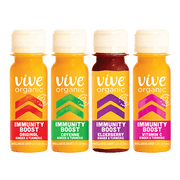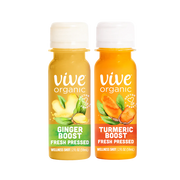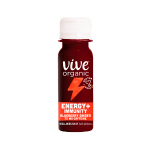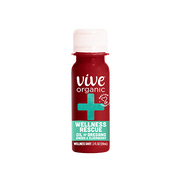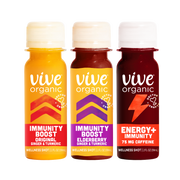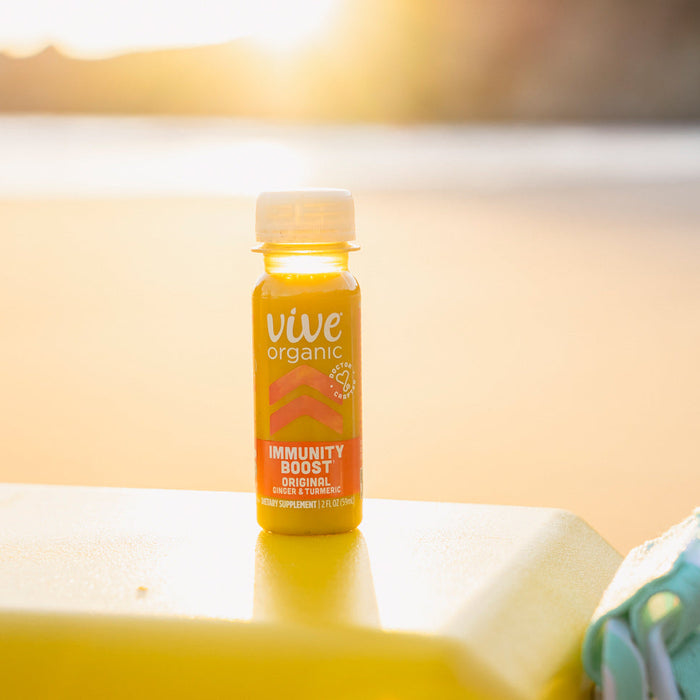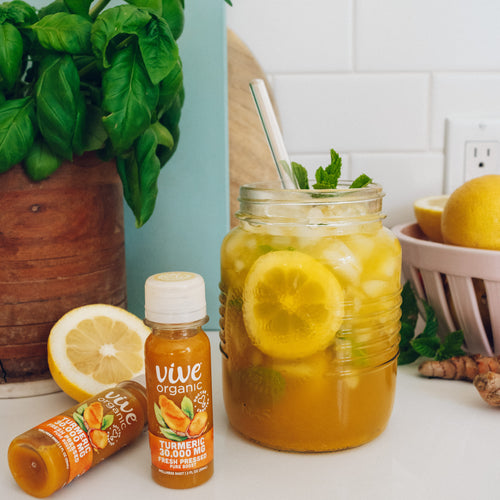If you are like most of us on this beautiful earth then you are energized by just waking up to a new day each morning! Sometimes though, with juggling our hectic day-to-day schedules we find ourselves feeling a bit fatigued and looking for ways to boost our energy.
Here in this blog, we discuss natural energy boosters that you can adopt to support your health and well-being now and for the long haul, supporting your health and overall wellness.
Meal Planning, Mini Meals, and Metabolism
This is a pretty comprehensive area because it touches on many facets of nutrition and how our body utilizes food for energy. So let's break it down to focus on some easy-to-adopt methods that may help support a natural boost in your energy levels.
How you plan your meals is super important. Eating more frequent, smaller meals throughout the day may require a little preplanning and some mindfulness, but metabolically it is a super way to maintain a consistent energy supply.1
Our foods contain nutrients that are metabolized to provide energy for us. The energy provided from food is known as glucose. There are also other nutrients that support our mitochondria and cellular health that we will discuss.
Enjoy More Mini Meals
In a world where everything we’re served seems to be oversized, eating several small meals throughout the day may seem unconventional. However, there’s the benefit of frequent smaller servings at a sitting may provide a sense of satiety or fullness, thereby minimizing the desire to impulsively reach for an unhealthy snack. Feeling full or satiated may support focus as well as support healthy blood glucose levels and provide essential nutrients throughout the entire day.1
Fueling the furnace by eating maybe 5-6 mini to moderate meals during your day helps to support an efficient calorie-burning process — your metabolism. Being cognizant to refuel about every 3-4 hours is just one way to get in the calories and nutrients needed daily.1
Tapping into your hunger cues is a great way to start to become more intuitive about eating. Also, know when you are full. Once you sense that physical feeling of fullness then put down the fork. This helps you to become more in tune with your body as a whole, plus supports the practice of mindfulness.2 Being mindful of your food selections and listening to your internal cues may help to avoid chronic overeating which may cause low energy.3 And let’s make sure you are hydrating all day long with water preferably, and not heavily caffeinated, sugar-laden energy drinks or other sugary beverages.
Start With Breakfast
Making the decision to have breakfast each morning is your first step in fueling your body. Breakfast gets us going and starts up our metabolism for the day. Your body needs a certain number of calories to perform functions at rest and work, to provide you with the energy needed throughout the day. If these basic needs are not met, you may feel the pangs of fatigue.3
Ensuring that we are eating properly throughout the day impacts our blood sugar or blood glucose. Glucose supplies our cells, muscles, and organs with energy to function.4,5 When blood glucose drops you may feel more hungry, irritable, and weak. This may in turn cause you to reach for something to eat such as a candy bar or a sweetened beverage like soda.
Some individuals like to eat as soon as they get up in the morning while others may skip breakfast completely. If you're not a breakfast person at this time, start with something as simple as an organic fruit juice, a small serving of oatmeal, or even an ounce or two of cheese with a piece of fruit.
Adding variety and trying to combine foods from some of the food groups helps you to balance your intake throughout the day and support healthy glucose metabolism.
Choose Powerhouse Foods
Choose plant-based foods such as berries, pomegranates, and walnuts that are naturally rich in plant-based polyphenols called ellagitannins (ETs) and have been associated with having health benefits. Urolithin A, a natural metabolite of ellagitannin-rich foods as noted above, may support cellular energy in our cell’s powerhouse — the mitochondria.6
Add complex carbohydrate foods to your grocery list like fresh or frozen fruits and vegetables, whole grains like quinoa, barley, and whole wheat pasta. They are fiber-rich and good sources of B vitamins like B12 to help convert food to energy.7
Lean protein-rich foods like Greek yogurt, chicken, chickpeas, lentils, and other legumes are great choices to provide vitamins and minerals to combat fatigue like some B vitamins and iron.7,8
Looking for more variety? Try tossing in some grilled salmon on your plate for omega-3 fatty acids which may support memory and cognitive function.8
Embrace Exercise
Whether it's getting up from your desk and taking a walk to chat with a coworker, running on the treadmill at the gym, or riding your bike, these are all great ways to get your body moving. Exercise not only gets our blood pumping and delivers oxygen and nutrients to our brain, muscles, and other parts of the body, but it also increases endorphins which can help us to be more energized naturally and support a positive mood.9
Supporting Sleep Health
It's no secret that the importance of sleep is crucial for the overall promotion of health. It is recommended adults get at least 7 to 9 hours of sleep each night.10 Even though tight deadlines and late-night emails may keep us from sticking to a sleep schedule, it is important to establish and be consistent with getting to bed at the same time each evening.
Adequate sleep supports so many functions in the body including our sleep cycle or circadian rhythm. A few nights of sleep deprivation — poor quality and not enough sleep — may make us lethargic and low in energy throughout the day.11
As you can see, there are so many natural ways to naturally boost energy while promoting positive health and well-being. Consider starting with identifying one simple goal that you would like to conquer. Be mindful of your choices and be consistent in practicing ways to develop habits that will shape and promote positive outcomes for you.
This blog contains promotional content about our products. The information provided in this blog is for educational and informational purposes only and should not be construed as medical advice. While the nutritional information and health tips shared here are based on published studies and expert insights, they should not replace advice and treatment from a healthcare professional. Always consult a qualified healthcare provider with any questions you may have regarding a medical condition or health objectives.
Citations
- Clinic, Cleveland. “How Small, Frequent Meals Can Help Athletes Keep Energy High.” Cleveland Clinic, 1 July 2024, https://health.clevelandclinic.org/how-small-frequent-meals-can-help-athletes-keep-energy-high. (Accessed 12 June 2024).
- Harvard Health. “Mindful Eating.” Harvard Health, 1 Feb. 2011, https://www.health.harvard.edu/staying-healthy/mindful-eating. (Accessed 12 June 2024).
- Eating for Energy. https://www.todaysdietitian.com/newarchives/040609p20.shtml. (Accessed 12 June 2024).
- Kerksick, Chad M et al. “International society of sports nutrition position stand: nutrient timing.” Journal of the International Society of Sports Nutrition vol. 14 33. 29 Aug. 2017, doi:10.1186/s12970-017-0189-4. https://www.ncbi.nlm.nih.gov/pmc/articles/PMC5596471/.
- Röder, Pia V., et al. “Pancreatic Regulation of Glucose Homeostasis.” Experimental and Molecular Medicine/Experimental and Molecular Medicine, vol. 48, no. 3, Mar. 2016, p. e219. https://doi.org/10.1038/emm.2016.6.
- Banc, Roxana, et al. “The Impact of Ellagitannins and Their Metabolites Through Gut Microbiome on the Gut Health and Brain Wellness Within the Gut–Brain Axis.” Foods, vol. 12, no. 2, Jan. 2023, p. 270. https://doi.org/10.3390/foods12020270.
- Emily Hirsch Ms, RD. “A Dietitian Recommends Top 15 Foods That Give You More Energy (and Foods to Avoid).” WellnessVerge, 2024. http://www.wellnessverge.com/foods-that-give-you-more-energy#:~:text=Consuming%20foods%20high%20in%20protein%2C%20healthy%20fats%2C%20and,and%20beans%20are%20excellent%20options%20for%20sustained%20energy. (Accessed 12 June 2024).
- Ld, Lizzie Streit Ms, Rdn,. “9 Healthy Beans and Legumes You Should Try.” Healthline, 30 June 2023, https://www.healthline.com/nutrition/healthiest-beans-legumes. (Accessed 12 June 2024).
- Clinic, Cleveland. “Power up: 10 Ways to Boost Your Energy Naturally.” Cleveland Clinic, 2 July 2024, https://health.clevelandclinic.org/natural-energy-boosters. (Accessed 12 June 2024).
- Hanson, Joseph A., and Martin R. Huecker. “Sleep Deprivation.” StatPearls - NCBI Bookshelf, 12 June 2023, https://www.ncbi.nlm.nih.gov/books/NBK547676.
- Rachael Ajmera Ms, RD. “9 Natural Ways to Boost Your Energy Levels.” Healthline, 9 May 2023, https://www.healthline.com/nutrition/how-to-boost-energy#TOC_TITLE_HDR_2. (Accessed 12 June 2024).
